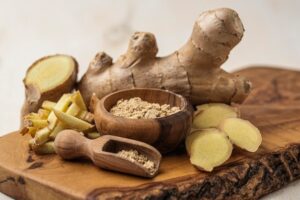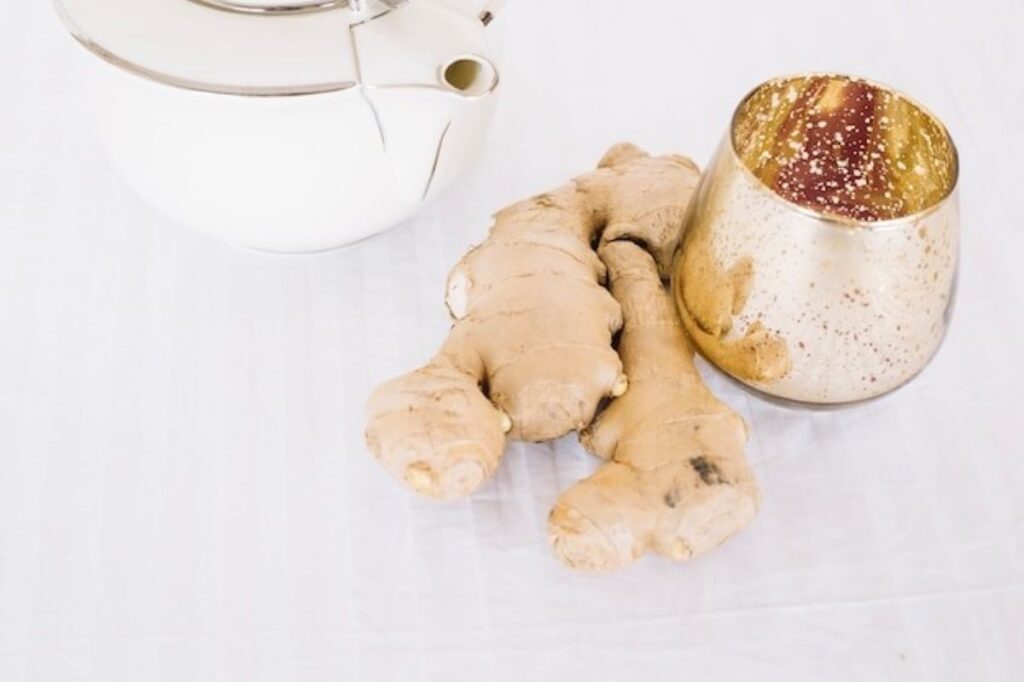How Ginger Helps in Getting Rid Of Nausea From Migraines
Migraines are a complex neurological illness that causes terrible pain, sensitivity to light and sound, and severe nausea. While medicines are widely used to treat migraine symptoms, natural treatments such as ginger are gaining popularity due to their therapeutic properties. Ginger, a common ingredient in many cuisines and traditional treatments, shows promise for relieving migraine-induced nausea and pain. In this post, Jaslok Hospital, the best headache & migraine clinic in Mumbai, will look at how ginger works, its special benefits for migraines, and how to use it efficiently.
The Science Behind Ginger’s Healing Properties

Ginger, scientifically known as Zingiber officinale, contains bioactive chemicals that have several health advantages. Gingerols and shogaols stand out among these chemicals. These two chemicals have strong anti-inflammatory, anti-nausea, and pain-relieving qualities, making ginger useful for migraine relief.
- Gingerols: Gingerols, the most common chemicals in fresh ginger, are anti-inflammatory and analgesic. They work on the body’s inflammatory pathways to alleviate pain and inflammation.
- Shogaols: When ginger is dried or cooked, gingerols transform into shogaols. Shogaols have been discovered by the best migraine doctors in Mumbai to be more potent than gingerols, especially in terms of anti-nausea properties.
How Ginger Alleviates Migraine Nausea

Nausea is a common and painful symptom of migraines. Ginger’s ability to relieve nausea is widely known, and it has long been used as a natural treatment for motion sickness and morning sickness.
- Impact on the Digestive System: Ginger stimulates digestion and helps empty the stomach, which can alleviate the queasiness that frequently accompany migraines. It is especially effective when nausea is combined with gastric stasis (slowed digestion), which can exacerbate during migraines.
- Effect on neurotransmitters: Ginger may impact serotonin receptors, which are involved in the sense of nausea. Ginger, by connecting to these receptors, can help reduce nausea while avoiding the sedative side effects common with anti-nausea medicines.
Ginger for Migraine Pain Relief

While ginger is best recognized by the best migraine doctors in Mumbai for its anti-nausea characteristics, it also contains pain-relieving properties, making it useful for migraine patients.
- Anti-Inflammatory Action: Migraines are frequently associated with inflammation in the blood vessels surrounding the brain. Ginger chemicals can reduce inflammatory cytokines and prostaglandins, both of which contribute to migraine discomfort development. Ginger can help with migraines by lowering inflammation.
- Reduction of Pain Sensitivity: Ginger has been shown in studies at the best hospital for rtms for migraine in Mumbai to lower pain sensitivity by working on the body’s pain pathways. In one trial, ginger extract was found to be as efficient as the standard migraine medicine sumatriptan in relieving migraine pain while avoiding the adverse effects often associated with medications.
- Inhibition of Prostaglandin Synthesis: Prostaglandins are lipid molecules involved in pain and inflammation. Ginger inhibits the manufacture of specific prostaglandins, which reduces migraine discomfort and shortens the duration of the attack.
Scientific Studies Supporting Ginger for Migraine Relief

Research at the best hospital for rTMS for migraine in Mumbai backs up ginger’s effectiveness in treating migraine-related nausea and pain.
- Study comparing Ginger with Sumatriptan: A 2014 study published in Phytotherapy Research compared ginger powder to sumatriptan, a commonly used migraine medicine. The study discovered that ginger was nearly as efficient in lowering migraine pain within two hours and was better tolerated by patients due to fewer adverse effects.
- Anti-inflammatory and analgesic properties: A 2020 study in Frontiers in Pharmacology showed ginger’s capacity to reduce inflammation and pain, focusing on its inhibitory effects on pain pathways. This makes it a logical option for those who want to avoid NSAIDs and other over-the-counter pain relievers.
How to Use Ginger for Migraines

Using ginger to treat migraines is simple, with numerous options to fit personal tastes and symptom severity.
- Ginger Tea: Fresh ginger tea is one of the most simple ways to eat ginger. Simply grate 1-2 inches of fresh ginger root, steep in boiling water for 10-15 minutes, then slowly sip. This strategy is very beneficial for individuals who are feeling nausea.
- Ginger capsules or supplements: Ginger supplements come in tablet form for individuals who desire a more concentrated dose. These can be used at the commencement of migraine symptoms, according to the dosage recommended on the product label or as directed by a healthcare provider.
- Ginger chews or candies: They are an easy way to relieve nausea, especially while you’re on the go. These, however, may include additional sugars, so they should be consumed in moderation.
- Ginger Essential Oil: Applying diluted ginger essential oil to the temples or inhaling it can bring relief. Ginger oil has anti-inflammatory and soothing effects, which can help relieve migraine pain and relax tight muscles.
- Fresh Ginger in Food: Adding fresh ginger to dishes is a simple way to include it in your diet. For a mild, therapeutic dose, mix ginger into smoothies, soups, and stir-fries.
Precautions When Using Ginger for Migraine Relief

While ginger is generally safe, it’s important to use it properly:
- Dosage: Eating significant doses of ginger (more than 4 grams per day) may result in adverse effects such as heartburn, gas, or stomach pain. It is best to start with minimal doses and gradually increase if necessary.
- Interactions with Medications: Ginger may interact with some drugs, particularly blood thinners. If you are taking any medications or have any health issues, speak with the Best migraine specialist in mumbai before using ginger as a migraine treatment.
- Allergies: Although rare, some people may be allergic to ginger. Stop using if you have any adverse symptoms, such as itching, swelling, or difficulty breathing.
Additional Natural Remedies to Complement Ginger For Migraine Nausea Relief

While ginger is helpful on its own, combining it with other natural therapies may increase its advantages for migraine relief.
- Peppermint oil: known for its cooling and relaxing properties, can be applied to the temples or consumed as tea to supplement ginger’s pain-relieving properties.
- Magnesium: Magnesium deficiency is associated with migraines. Magnesium supplements combined with ginger may help lessen migraine frequency and intensity.
- Hydration: Dehydration can aggravate migraines. Make sure you stay hydrated, especially if you’re drinking ginger tea, which might have a minor diuretic impact.
- Lavender oil: It is known for reducing headache pain and promoting relaxation. Using lavender oil in conjunction with ginger may help enhance sleep quality, which is critical for migraine prevention.
Related: Natural Remedies with Essential Oils for Migraine Relief
Ginger has a long history in traditional medicine, and its scientific benefits make it an effective natural migraine treatment. Ginger can help you manage migraines more effectively by lowering nausea, inflammation, and discomfort, with fewer side effects than many drugs. However, always contact with the best migraine specialist in Mumbai before starting any new treatment, especially if you are already taking medicine. Ginger’s versatility—whether consumed as tea, supplements, or essential oil—provides a variety of relief alternatives, making it an effective ally in the quest to naturally ease migraine pain.
For comprehensive care and personalized treatment of migraines and other neurological conditions, trust the expert team at Jaslok Hospital, the Best headache & migraine clinic in mumbai. Combining advanced medical solutions with compassionate care, Jaslok Hospital offers effective migraine management tailored to your unique needs.

